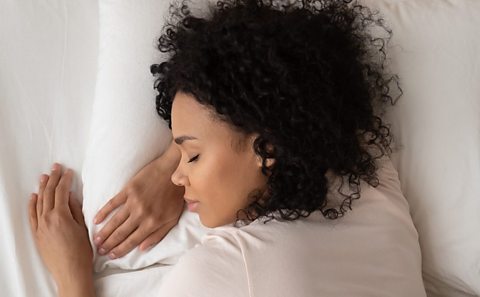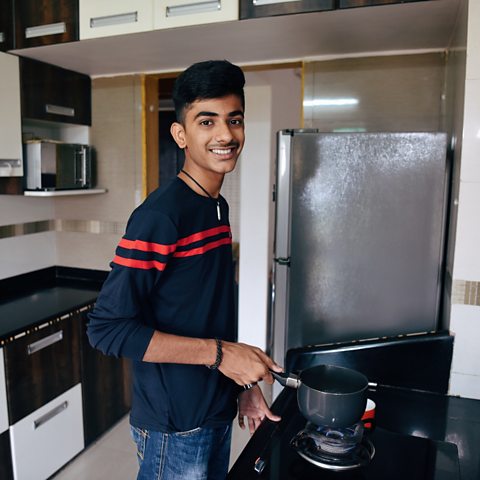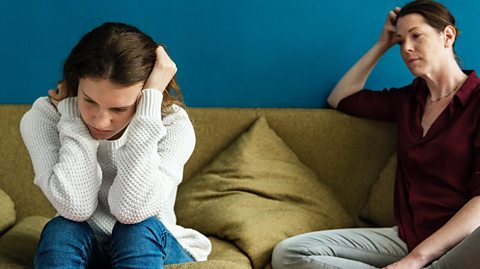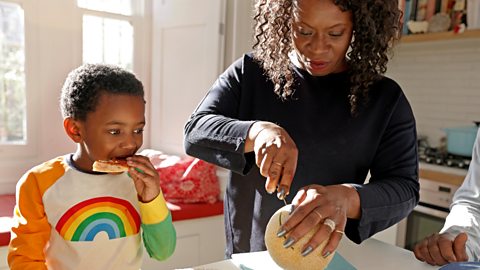For many parents and carers, life is full of challenges - juggling family and work - particularly in the last couple of years. So, itÔÇÖs important to check in on our own wellbeing, as well as that of our children.
Wellbeing and resilient relationships donÔÇÖt just happen, they need care and attention.
Self-care isnÔÇÖt a luxury - it is the essential battery recharge we all need to have the physical and mental energy to make the most of good times, and to keep going during tough times.
The power of self-care

Looking after ourselves in this way - through self-care - doesnÔÇÖt need something extraordinary, but some ÔÇśordinary magicÔÇÖ (as described by the psychologist, Ann Masten). Moments of kindness, the offer of a helping hand, showing and receiving care and attention, all have the power to transform even the darkest moments.
As a parent or carer, you may well be thinking about your own childÔÇÖs wellbeing while overlooking your own. But keeping going with many aspects of parenting, relies on you putting your own oxygen mask on first to look after yourself. That way, you will be best able to offer a helping hand to the children and teenagers in your life.
EveryoneÔÇÖs approach to self-care will look different, but it is helpful to run through a mental checklist of some of the important areas to consider:
Check 1: Looking after my body
Taking care of our physical wellbeing can go a long way to boosting emotional wellbeing.
That includes a variety of daily activities, like paying attention to what we eat, taking time to exercise and to relax, and maintaining good quality sleep.
Having a healthy and balanced diet improves how you feel physically. It can also lift mood, motivation and energy levels.

Check 2: Time away from screens
Making sure we have some time away from screens during the day and ensuring that screen time is limited before going to sleep, are important to enable us to reset and recharge.
Look at what you can replace screen time with, like keeping active through regular exercise and building fun physical activity into your day.
As a family, playing games together can be a great way to enjoy each otherÔÇÖs company and invest in everyoneÔÇÖs wellbeing. Catching up with a friend, by phone or in person in the open air, can help create a space for your own self-care too.

Check 3: The value of routine
Think about how your own routines as a family may have changed (or even disappeared, despite your best intentions) as your children get older. Teenagers naturally come alive at night and, if they have been spending a lot of time at home, many have turned night into day.
Helping your children, whatever their age, to gradually re-establish a regular routine will be an important way to support them during their time away from school, including during the holidays.
Check 4: Finding a balance
Time away from work is usually an opportunity to relax, but things still need to get done. So you need to find a balance.
A little forward planning can help everyone to make the most of this free time. Mix up the day with some ÔÇśmust doÔÇÖsÔÇÖ, and then the fun activities that reward you for doing them.
If what you want to get done seems too big to tackle, perhaps think of it as a ÔÇśpizza planÔÇÖ with each slice representing one small part of the whole - then you can work through it one slice at a time.

Check 5: Stay connected
Once our basic needs are met, the quality of our relationships is by far the most important thing in predicting long-term physical and mental health. These connections have got us through many challenges and, as we are able to see our friends and family in-person again, remember to nurture them as you may have done with regular video calls, or socially distanced walks during the pandemic.

Check 6: Looking ahead
In the last couple of years, young people have faced big disappointments, with cancelled holidays, exams, social gatherings, and some uncertainty around what will happen next. Helping them to create new plans is an important way of supporting them. DonÔÇÖt forget yourself, and the value for you too of beginning to have ideas about the future.
Getting through the pandemic has been a big achievement. It is okay not to be totally okay with uncertainty, and to feel a mixture of emotions. When you can, allow yourself and your family a little time to take stock, reflect and recharge. Looking after ourselves, and each other, continues to be really important at this time.

These tips have been provided by Dr Roslyn Law who is a Consultant Clinical Psychologist at the charity Anna Freud who also have these for young people recommended by young people themselves - as well as self-care tips for and .
For parents of babies and pre-school children 91╚╚▒Č Tiny Happy People have a collection of advice here.
The 91╚╚▒Č Action Line has further support.

More from 91╚╚▒Č Bitesize Parents' ToolkitÔÇŽ
91╚╚▒Č Headroom
Mental health advice for parents of children, teenagers, and children with SEND.

Parents' Toolkit
Fun activities, real-life stories, wellbeing support and loads of helpful advice - we're here for you and your child.

Bitesize Support
There's lots of new experiences this term, weÔÇÖve asked experts and those whoÔÇÖve been through it to share their wisdom.

Six ways to manage loneliness as a parent
Here are six tips from the experts at the Marmalade Trust to help talk about loneliness and find support as a parent.

Mental health first aid kit for parents: Who to ask and what to do
Worried that your child needs help with their mental health? Here's how you can access professional help and support your child while you wait.

Five ways to manage your wellbeing as a parent
How parents can look after their mental health alongside all of their responsibilities.
